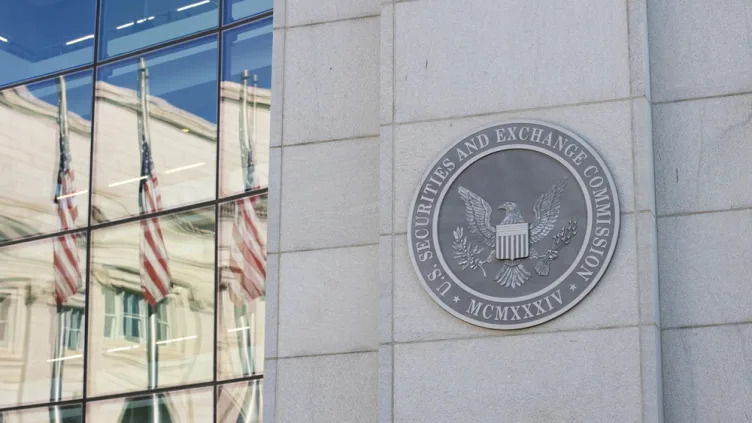As the cryptocurrency market continues to evolve, it is essential for companies to navigate the complex regulatory landscape effectively. While conventional wisdom may suggest that the UK is at a disadvantage compared to larger markets such as China and the US, we argue that this perception is far from accurate. In fact, the UK has several overlooked and misunderstood advantages relative to other markets.
A Global Financial Hub
London’s leading position as a global financial hub gives UK regulation a significant global influence. It is now non-negotiable for companies selling fungible, transferable tokens from any country to observe UK financial promotion rules if their communication can affect the UK. This means that companies must comply with UK regulations, even if they operate outside of Europe.
UK Regulatory Superpowers
The consequences of breaching UK rules are severe, with penalties including up to two years’ imprisonment and an unlimited fine. The Financial Conduct Authority (FCA) has recently published guidance highlighting the importance of complying with UK rules, particularly for firms providing on/off-ramp services to crypto companies conducting illegitimate activities. These firms risk losing their banking and payment rails if they fail to comply.
Growing Regulatory Clarity
As regulatory clarity grows, it makes sense for cryptocurrency companies to take a risk-based approach when entering new markets and engaging with ethical third parties to scale their ventures. For companies looking to expand into the EU, the Markets in Crypto-Assets (MiCA) regulation creates several challenges and opportunities that can be approached from a stronger position than many think.
EU Member States: Divergence in Regulations
While MiCA purports to be a single regime, experience shows that different EU countries will seek to position themselves as the ‘go-to jurisdiction.’ In practice, there are likely to be only a few winners. We are already seeing some divergence between EU member states in terms of taxes imposed on crypto firms and the ease with which firms can interact with existing infrastructure.
Taxation and Infrastructure
For example, some EU countries impose lower taxes on crypto firms than others. Additionally, there are differences around whether companies can leverage pre-existing licenses to reduce the cost of going to market. The level of substance required to obtain a license also varies between jurisdictions.
Choosing the Best Jurisdiction
Non-EU cryptocurrency companies can choose the best jurisdiction for their needs, taking careful consideration into account. Advisers in each jurisdiction will seek to sell themselves, and the cost differences can be substantial. Companies are using strategic solutions to reduce EU access costs by around 90%.
The Cost of Compliance
Given the cost of compliance with MiCA, companies are looking to headquarter their corporate group in the UK due to its deep network of legal and financial services, world-class universities, and regulatory influence. While Web3 natives may not see the UK as market-leading due to English law being used for international business deals, regulators often look to the UK’s position when drafting their frameworks.
Global Collaboration
It is worth noting that the outcome of the European Securities and Markets Authority’s guidance on reverse solicitation provided under MiCA leads to a similar outcome as the UK financial promotion rules. We have found through advising various regulators globally that they are always interested in seeing what the UK regulatory position is, and indeed, we have seen collaboration among regulators to set common minimum global standards.
Benefits of a UK-First Approach
Companies that take a UK-first approach to their products benefit from an established and robust legal framework internationally recognized by other jurisdictions. This sets out the requirements for regulating crypto asset businesses. Businesses and investors would do well to consider these often-overlooked regulatory advantages that being based in the UK offers when planning for the future.
Conclusion
In conclusion, the UK’s position as a global financial hub gives it significant influence over international regulation. The consequences of breaching UK rules are severe, and companies must comply with UK regulations even if they operate outside of Europe. As regulatory clarity grows, companies can take a risk-based approach to entering new markets and engaging with ethical third parties.
About the Author
Pavan Kaur is a partner at Gunnercooke, serving as a fractional chief marketing officer to crypto companies. Pavan is also a GTM strategy expert for Outlier Ventures’ accelerator programs.
Disclaimer
This article is for general information purposes and is not intended to be and should not be taken as legal or investment advice. The views, thoughts, and opinions expressed here are the author’s alone and do not necessarily reflect or represent the views and opinions of Cointelegraph.
Explore More Articles Like This
Subscribe to our Markets Outlook newsletter for critical insights to spot investment opportunities, mitigate risks, and refine your trading strategies.
By subscribing, you agree to our Terms of Service and Privacy Policy.



